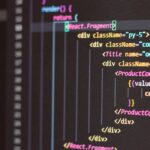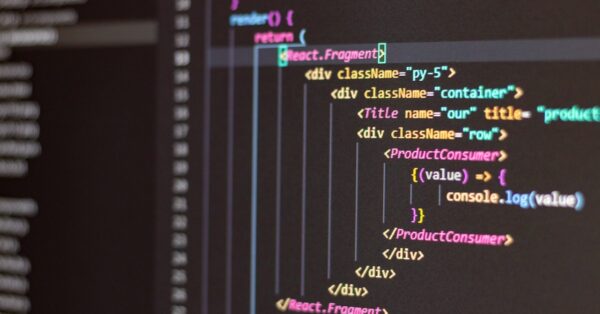Exploring the Future of Machine Learning Machine learning is transforming the world. It is a key part of artificial intelligence. This technology is reshaping industries and daily life. The future of machine learning is bright. It promises to revolutionize how we interact with technology. From healthcare to finance, its impact is profound. Data science and data mining are closely linked to machine learning. They provide the foundation for its growth. Together, they drive innovation and efficiency. Machine learning algorithms are becoming more advanced. They offer better predictions and insights. This progress is crucial for businesses and researchers alike. Deep learning, a subset of machine learning, is gaining traction. It uses neural networks to process complex data. This approach is unlocking new possibilities. Automation is another area where machine learning excels. It increases efficiency and reduces errors. This is vital for industries seeking to optimize operations. Ethical considerations are important as machine learning evolves. Issues like bias and privacy need addressing. Building trust in these systems is essential. The demand for skilled professionals in this field is growing. As machine learning advances, so does the need for expertise. This trend will continue to shape the future. Understanding Machine Learning: Foundations and Evolution Machine learning is a pivotal part of artificial intelligence. It focuses on creating systems that learn from data. These systems improve their performance over time. The evolution of machine learning has been significant. It began with basic algorithms. Today, they are complex models capable of handling vast data. This growth is driven by advancements in computing power. Faster processors and increased storage enable more complex calculations. This supports the development of advanced machine learning techniques. The foundation of machine learning is built on several concepts: Each plays a unique role in data analysis and prediction. Supervised learning involves training a model on labeled data. It learns to make predictions based on input-output pairs. This approach is common in applications like fraud detection. Unsupervised learning does not rely on labeled data. Instead, it identifies patterns and structures within data. It is used in clustering and association tasks. Reinforcement learning focuses on decision-making. It learns by interacting with an environment and receiving feedback. It is prominent in robotics and game AI. Machine learning’s future is promising. The technology continues to evolve. This ensures its place at the forefront of technological innovation. As it matures, its applications and impact will expand further. The Interplay of Machine Learning, Data Science, and Data Mining Machine learning, data science, and data mining are interconnected fields. They often work together to analyze and interpret complex data. Their synergy leads to more efficient and insightful outcomes. Data science is the overarching discipline. It encompasses various techniques for analyzing vast amounts of data. Machine learning falls under this umbrella. It offers tools for automating data-driven decision-making processes. Data mining is a core component of the data science process. It focuses on discovering patterns and relationships in large datasets. Machine learning enhances data mining by improving the accuracy of pattern recognition. The relationship between these fields can be understood as: Each field contributes unique methodologies and solutions. Their integration results in robust systems capable of handling diverse data challenges. The future of these fields is intertwined. Continued collaboration will drive innovation. This will advance the capabilities of intelligent systems and applications. The interplay ensures each evolves with expanding potential. Current Trends Shaping Machine Learning Machine learning is rapidly evolving. New trends are shaping its future. These trends are influencing how businesses and technology grow. One significant trend is the rise of automation. Machine learning is automating routine tasks, boosting efficiency, and cutting costs. This trend is helping companies focus on innovation. Real-time data processing is another emerging trend. Systems that process data in real-time offer faster decision-making capabilities. This is crucial for industries that rely on quick reactions, such as finance and healthcare. Explainable AI is gaining traction. As machine learning algorithms become complex, understanding their decisions is vital. Transparent AI models help build trust among users and stakeholders. Important trends in machine learning include: IoT integration is transforming machine learning. Connected devices generate vast data, offering new insights and applications. This integration improves system responsiveness and intelligence. by Shubham Dhage (https://unsplash.com/@theshubhamdhage) These trends are not standalone; they often intersect. Together, they drive the broader adoption of machine learning. As these trends continue, the potential of machine learning to revolutionize industries will grow. Keeping pace with these developments is crucial for businesses and tech professionals alike. Deep Learning and Neural Networks: The Next Frontier Deep learning represents a revolution within machine learning. It uses neural networks to mimic human brain functions. This technology excels at processing complex data, such as images and speech. Neural networks consist of layered structures. These layers allow deep learning to identify patterns and features in data. The more layers, the deeper the network, leading to advanced learning capabilities. Applications of deep learning are diverse. They’re seen in image recognition, natural language processing, and autonomous vehicles. Deep learning models significantly improve the accuracy and efficiency in these areas. Key aspects of deep learning include: Despite its potential, deep learning faces hurdles. High computational demands and energy consumption can be challenges. Developing sustainable practices is crucial for its future advancement. by Logan Voss (https://unsplash.com/@loganvoss) As this frontier expands, interdisciplinary research will be pivotal. Combining insights from fields such as neuroscience and computer science can drive innovation. The next breakthrough in deep learning may well redefine the landscape of machine learning. Its impact is shaping the technology of tomorrow and providing us with tools beyond imagination. Machine Learning in Action: Key Industry Applications Machine learning is transforming industries with its ability to analyze vast amounts of data. It unveils patterns and provides actionable insights for various sectors. This capability drives innovation and efficiency across the board. In healthcare, machine learning enhances diagnostic accuracy. It aids in predicting disease outcomes and personalizing treatment plans. Predictive algorithms identify potential health risks before they become critical. This leads to improved patient outcomes and streamlined care. The finance sector utilizes machine learning for fraud detection. Algorithms analyze transaction patterns in real time. This proactive approach minimizes losses and secures financial operations. Moreover, algorithmic trading relies on machine learning to make split-second decisions. Retail benefits from machine learning through personalized marketing. It analyzes consumer behavior to forecast trends and preferences. This enables businesses to tailor their offerings and improve customer satisfaction. The result is increased sales and stronger customer relationships. In manufacturing, machine learning optimizes supply chains and predicts equipment failures. It ensures seamless operations and reduces downtime. This enhances productivity and reduces costs, leading to a competitive advantage. Key industries integrating machine learning include: by Deng Xiang (https://unsplash.com/@dengxiangs) Machine learning’s integration across sectors is reshaping business models and decision-making. Its potential continues to grow, offering innovative solutions to complex problems. As industries harness its power, the future promises even more impactful applications. The Role of Big Data and Predictive Analytics Big data plays a crucial role in machine learning. It provides the immense volumes of information necessary for training algorithms. With more data, models become more accurate and effective. Predictive analytics leverages machine learning to forecast future outcomes. By examining past trends, it anticipates patterns and behaviors. This assists businesses in making informed decisions and staying competitive. […]
Interpreters vs Compilers: What is Difference ?
Interpreters and compilers are both used to execute programs written in programming languages, but they differ in how they process and execute the code. Here are the key differences between interpreters and compilers: Overall, the choice between an interpreter and a compiler depends on factors such as performance requirements, development speed, platform portability, and the […]
What is Just-in-Time (JIT) compilation ?
Just-in-Time (JIT) compilation is a technique used by some programming languages and runtime environments to improve the performance of interpreted code. It combines the benefits of both interpretation and compilation by dynamically translating and optimizing parts of the code during runtime. In traditional interpretation, the source code is executed line by line, with each line […]
What is Interpreter in Programming Language?
An interpreter is a program or software component that directly executes instructions or statements written in a programming language without the need for prior compilation. It reads the source code line by line, converts it into machine code or an intermediate representation, and executes it immediately. When a program is run through an interpreter, the […]
What is Compilation in Programming Language?
In the context of programming languages, compilation refers to the process of translating source code written in a high-level programming language into a lower-level representation, typically machine code or bytecode, that can be executed directly by a computer. The compilation process involves several steps: Once the compilation process is complete, the resulting executable file or […]
What is Python and It’s Features ?
Python is a high-level, interpreted programming language known for its simplicity, readability, and versatility. Created by Guido van Rossum and first released in 1991, Python has become one of the most popular programming languages in the world. Key features of Python include: Python’s popularity can be attributed to its simplicity, versatility, and the vast number […]
What is Programming Language ? : Its History & Future
Programming languages are the backbone of digital world and modern technology. They enable us to communicate with computers and build software applications that power industries, shape economies, and transform societies. From the early days of machine code to the present-day languages like Python, Java, and JavaScript, the history of programming languages is a testament to […]
Python Knowledge
Just-in-time (JIT) compilation, Compilers, and Interpreters: What is Difference ?
Just-in-time (JIT) compilation, compilers, and interpreters are different approaches to executing code in programming languages. Here’s a comparison of these three concepts: To summarize, JIT compilation is a technique that combines aspects of interpretation and compilation to dynamically optimize code during runtime. Compilers translate the entire code upfront for direct execution, while interpreters execute code […]
Understanding High-Level Programming Languages: Unlocking Simplicity and Productivity
In the world of computer programming, high-level programming languages play a vital role in simplifying the software development process. These languages enable programmers to write code at a higher level of abstraction, making it easier to express complex ideas and build powerful applications. In this blog post, we will delve into the concept of high-level […]


